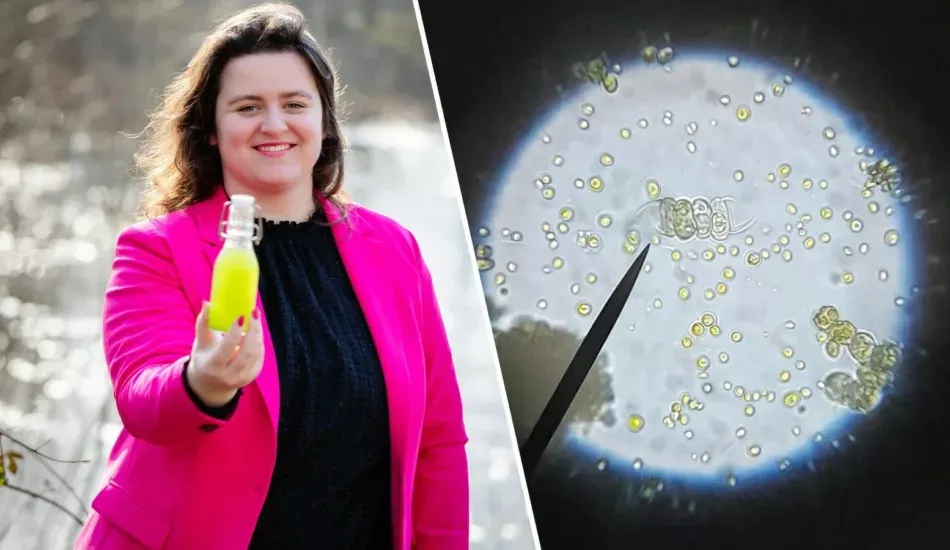The Netherlands is threatened with a shortage of drinking water by 2030, but large parts of the world are already facing scarcity. There, seawater must be desalinated with expensive and energy-guzzling desalination plants. The Dutch Meinke van Oenen has come up with an alternative: algae that extract salt from water while converting CO2 into oxygen. "The green gold," she calls them.

She is only twenty, but since she did a profile paper on water scarcity at grammar school when she was seventeen, Van Oenen has been researching natural solutions to water shortages. "Those techniques have survived billions of years of evolution, are super good and effective and in harmony with their environment," she says.
Salt-loving algae
Her technological innovation is called Algaenius. It works with so-called halophilic algae. These are salt-loving seawater algae that extract 70 to 90 percent of the salt from water. The warmer it is, the higher the percentage. Their use in desalinating salt water has been the subject of more research. The technology is proven, but not yet applied in practice. Van Oenen is still looking for a co-founder to start a company together that will build large installations. In these, the algae can desalinate water naturally on a large scale. What that will look like in practice? "It will resemble the large basins at water boards' sewage treatment plants," she says.
Breaking the cycle
Most countries in Asia, Africa and the Middle East use reverse osmosis to desalinate water. This technique is not very efficient. From four liters of seawater, those water plants make about one liter of clean water, which is turned into drinking water with all kinds of additives. Moreover, the membrane technology costs a lot of energy and emits relatively large amounts of CO2. "I always thought it was so extraordinary when you look at how that works. Technologies like that make us enter a kind of vicious circle," Van Oenen says. "There is too much CO2 in the air. That causes the climate to warm up, we have more drought and thus water shortages, and we solve that again with technologies that emit more CO2. So basically you have to come up with something to break that cycle. Something that stops that last step. So not only climate adaptation, but also climate mitigation. These algae actually absorb CO2 and emit oxygen. So that's actually a form of carbon capture."
Brackish water for industry and agriculture
The water made by the halophilic algae is not clean drinking water, Van Oenen emphasizes. "It is brackish water that can be used by industry and agriculture, although not all crops can stand the salty water. If you compare this technology to membrane technology, it is a lot less complicated. The technology also takes less energy and emits less CO2. That makes it sustainable. For European countries like Italy, Spain and Greece it is most interesting in the short term. There you already see major water shortages developing."
View how Algaenius' technology works:
International awards
.For a twenty-year-old, the student from Losser has already won quite a few awards with her invention. Sometimes with her fellow students and her team. Among other things, she won various international prizes such as the United Nations Gamechanger Challenge (New York, 2023), the Wetskills Water Challenge (New York, 2023), the Young Lady Business Academy, (2023 edition) the sustainability Olympiad of INESPO (Utrecht, 2022) and the Dutch Junior Water Prize (Stockholm, 2022). The media is already calling her a young Boyan Slat (who, by the way, is only 30 himself). Instead of the plastic problem, she is tackling the problem of water scarcity.
Additional benefits
.Algae desalination technology also has other advantages over reverse osmosis. The concentrated salt water left over by desalination plants - brine - is often dumped and is harmful to the environment and marine ecosystem. In technology using algae, the algae absorb the salt. These thus form biomass that can be used in biofuels and for food supplements. "To me, that's the innovative thing about this," says Van Oenen.
Source: Change Inc.